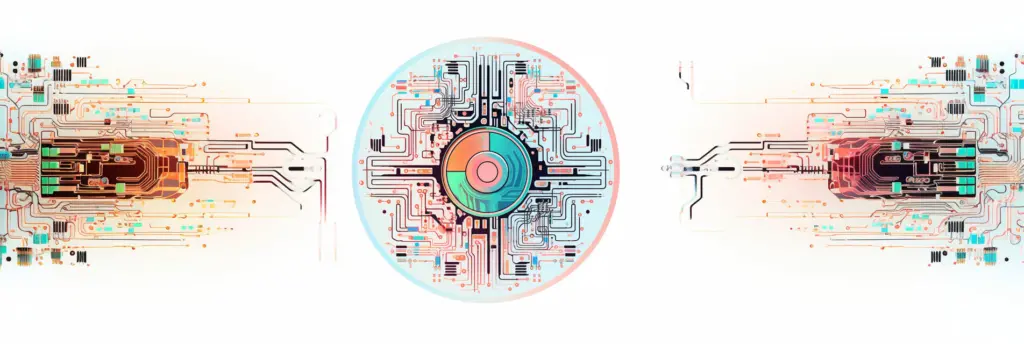Imagine a world where assets like stocks, bonds, and real estate are no longer restricted by physical certificates and intermediaries. Instead, they are seamlessly digitized, stored securely on the blockchain, and accessible globally, 24/7. Welcome to the world of tokenized securities: a financial innovation that we will explore in-depth in this article. We’ll delve into what tokenized securities are, the remarkable benefits they offer, the challenges they face, and the transformative impact they are having on the global finance industry.
Understanding Tokenized Securities
What are tokenized securities?
Tokenized securities are digital representations of traditional financial assets, such as stocks, bonds, and real estate. Blockchain technology creates these digital tokens, ensuring transparency, security, and immutability. Traditional securities are stored and traded on centralized platforms. Tokenized securities are decentralized and allow peer-to-peer trading.
Traditional securities often create barriers to entry for retail investors, whereas tokenized securities allow global investor participation. Achieving this involves fractional ownership, where investors can purchase and sell smaller asset portions, broadening accessibility. Tokenization also enhances liquidity by enabling continuous 24/7 token trading, eliminating the reliance on conventional market hours.
Evolution
The story of tokenized securities is one of transformation, resilience, and pioneering innovation. Tokenized securities initially encountered skepticism and regulatory roadblocks, primarily because they represented a departure from traditional financial norms. The disruptive potential of blockchain technology created both intrigue and apprehension among market observers. However, blockchain technology has now become a trusted enabler of transparency and security, whilst tokenized securities have become sophisticated financial instruments.
As a result, regulators globally are creating more appropriate guidelines and regulations to govern tokenized securities. These regulations protect investors by ensuring compliance with existing financial laws, whilst simultaneously fostering innovation. The synergy between regulation and innovation is pivotal in shaping the future of the tokenized security market. For a more in-depth exploration of the security token market and its dynamics, you can explore our dedicated article here.
Key Advantages
Tokenized securities offer many advantages that promise to reshape the way we invest and trade. In this section, we delve into the key benefits that make them a game-changer in the world of finance.
- Streamlined Issuance & Trading: Traditionally, issuing and trading securities has involved multiple intermediaries, such as brokers, custodians, and clearinghouses. Tokenization changes this traditional model by simplifying and streamlining the entire process. The need for intermediaries is significantly reduced with tokenized securities, resulting in faster and more cost-effective transactions.
- Unprecedented Transparency: The blockchain, the foundation of tokenized securities, is an immutable ledger that records all transactions in detail. Blockchain’s inherent operational transparency creates an immutable and auditable trail of ownership, instilling trust and confidence in the market and helping to prevent fraud. Investors can trace their assets’ journey, view historical performance, and access vital documents with ease.
- Access to Alternative Investments: In addition to transforming traditional financial assets, tokenization has also opened up new possibilities for alternative investments. Investors can now diversify their portfolios and access previously illiquid markets by tokenizing assets like artwork, collectibles, and intellectual property.
- The Promise of Smart Contracts: As the adoption of tokenized securities continues to grow, we can expect to see further innovation in the space. For example, tokenized securities can include smart contracts. These self-executing contracts are encoded with predefined conditions, such as dividend payments or voting rights. Smart contracts execute automatically when conditions are met, reducing the need for manual intervention.
The Benefits of Tokenized Securities
Unlocking Financial Freedom – How Are Tokenized Securities Changing the Game?
Tokenized securities are not just a buzzword; they represent a monumental shift in the way we perceive and interact with financial assets. In this section, we’ll discuss the significant benefits that they offer to investors, and the finance industry as a whole.
Increased Liquidity
Picture a world where the financial markets never sleep, where investors can trade securities 24/7, without the constraints of traditional market hours. Tokenized securities are the catalyst for this financial revolution.
Tokenized securities break away from the confines of their traditional counterparts and make this vision a reality by leveraging the power of blockchain technology. Whilst traditional securities limit investors by requiring market hours and intermediaries, tokenized securities offer a trading process that is seamless and efficient. Investors can trade assets directly with each other, eliminating the need for intermediaries and reducing transaction costs. This increased liquidity enhances market efficiency and price discovery, as well as benefitting investors.
Democratization of Investment
Tokenized securities also open up investment opportunities to a wider audience. With lower entry barriers, investors can access fractional ownership of high-value assets and diversify their portfolios1. Moreover, the digital nature of these assets provides easy access and improved transparency. To learn more, check out our article on the democratization of investment opportunities.
Traditionally, only wealthy investors have been able to invest in high-value assets like real estate and fine art. Tokenized securities, however, break down these barriers. They introduce the concept of fractional ownership, allowing investors to hold a piece of an asset – for example, a luxury property – at a fraction of the cost. This fractional ownership model allows individuals with smaller budgets to participate in high-value markets.
Furthermore, the digital nature of tokenized assets fosters transparency, allowing investors to easily track their holdings, view historical performance, and access relevant documents. This transparency in turn builds trust and confidence in the investment process, empowering investors to make informed decisions. To begin your own tokenized security investment journey, click here.
Improved Efficiency and Transparency
Blockchain technology provides the foundation for tokenized securities and supports innovation in other areas of the financial markets. For example, smart contracts automate key processes, with the terms of the agreement directly written into code. In the context of tokenized securities, smart contracts automate various corporate processes, such as stock splits and mergers. This automation eliminates the need for manual intervention and reduces the risk of errors or delays. For example, when a company declares a dividend, smart contracts automatically distribute the dividends to token holders based on their ownership percentage. This efficient process reduces administrative costs and ensures accurate and timely distribution of benefits to investors.
Furthermore, the blockchain records every transaction, creating a tamper-proof audit trail. This transparency enhances trust in the financial ecosystem, as investors can independently verify the ownership and transaction history.
A tokenized securities exchange platform allows for the trading of financial assets that have been converted into digital tokens on a blockchain. Traditional securities like stocks, bonds, or real estate can be “tokenized” to create a digital representation of ownership. On a tokenized exchange, investors can buy and sell these digital tokens with a level of transparency and security that is hard to achieve in traditional financial systems. The use of blockchain technology ensures that transactions are immutable and easily verifiable. For beginners, think of a tokenized securities exchange as a stock market that has been upgraded for the digital age, offering enhanced speed, flexibility, and inclusivity. You can get started easily, by signing up here.
The Challenges of Tokenized Securities
Navigating the Uncharted Waters: Overcoming Hurdles in Tokenized Securities
Tokenized securities do bring with them a set of challenges that need to be addressed to encourage adoption. In this section, we explore these challenges and shed light on the path forward.
Regulatory Uncertainty
Tokenized securities operate within a rapidly evolving regulatory landscape. Jurisdictional differences can create uncertainties for issuers and investors about compliance requirements and potential legal implications. Harmonizing regulations across jurisdictions is therefore important for the mainstream adoption of these assets.
Regulatory uncertainty in the tokenized securities space presents an opportunity for governments and regulatory bodies to collaborate and establish comprehensive frameworks2. These frameworks would provide clarity and guidance for issuers and investors, creating trust and confidence in the market. They would also help prevent fraudulent activities and ensure the protection of investors’ rights.
Technological Challenges
Blockchain technology also still has some technical hurdles to overcome. Scalability, interoperability, and security remain important concerns. Blockchain infrastructure must adapt and strengthen to mitigate risks effectively as the demand for tokenized securities grows.
Because Blockchain networks must efficiently handle a burgeoning volume of transactions, scalability is key to their success. To address scalability, innovators are exploring solutions such as layer-two protocols and sharding to ensure the seamless flow of tokenized securities.
Achieving interoperability is another vital piece of the puzzle. Seamless transferability between different blockchain networks is crucial for the liquidity and ease of trading of tokenized securities. Standardization efforts, such as cross-chain protocols, are underway to enable interoperability and enhance the market’s efficiency.
Finally, security demands continuous research and development. Robust security measures, including secure key management and consensus algorithms, are essential to protect investors’ assets and maintain the integrity of transactions.
Use Cases of Tokenized Securities
New Opportunities: Real-World Applications of Tokenized Securities
Tokenized securities are changing the way we think about investment. In this section, we dive into real-world applications and use cases of tokenized securities, shedding light on their transformative potential.
Real Estate Tokenization: Redefining Property Ownership
Fractional ownership of properties, made possible by tokenization, makes real estate investments accessible to a wider range of investors. Once a property is divided into tokens, individuals can invest in fractional ownership, unlocking liquidity and allowing for easier transferability.
Imagine owning a fraction of a luxurious beachfront property in a sought-after tourist destination. Thanks to real estate tokenization, individuals who might not have the means to buy an entire property can now invest in a small percentage of it. This breakthrough opens new doors for those looking to invest in real estate without significant financial commitment.
Moreover, real estate tokenization increases liquidity in the market. Previously, property transactions were lengthy and complex processes. With tokenization, these transactions can be executed more efficiently, as investors can easily trade their tokens on digital platforms. This increased liquidity benefits both buyers and sellers, as it reduces the time and costs associated with traditional real estate transactions.
Equity Tokenization
Equity tokenization entails representing the shares of privately held companies as tokens. This innovation has the potential to revolutionize traditional equity markets by introducing liquidity to illiquid assets. Equity tokens also provide investors with enhanced transparency and global reach.
Let’s consider a successful startup company seeking to raise capital, to illustrate the impact of equity tokenization. Traditionally, the company would have to go through the lengthy process of issuing shares and finding investors willing to buy them. However, with equity tokenization, the company can tokenize its shares and offer them to a broader range of investors, including those who may not have had access to such opportunities before. Global sources of revenue in the form of investor participation therefore expand funding opportunities for companies3.
Furthermore, equity tokens provide investors with exceptional transparency. By representing shares as tokens on a blockchain, investors can easily track their ownership and monitor the performance of their investments in real-time. This level of transparency reduces the information asymmetry that often exists in traditional equity markets, giving investors more confidence and trust in the system. You can sign up with DIGTL to explore tokenized securities investing.
Additionally, equity tokenization expands the global reach of investments. With traditional equity markets, investing in companies outside of one’s own country can be challenging due to regulatory and logistical barriers. However, by tokenizing shares, investors globally can participate in the ownership of a company, fostering a more inclusive investment ecosystem. Have a look at the WallStreetBets tokenized stock list and guide to learn more.
Embracing Tomorrow’s Finance: The Future of Tokenized Securities
Predicted Trends
As tokenized securities continue to gain momentum, several trends are expected to emerge. These include the mass tokenization of alternative assets, the integration of decentralized finance (DeFi) protocols, the exploration of regulatory sandboxes to foster innovation in the sector, and the utilization of smart contracts for automated and efficient transactions.
The tokenization of alternative assets, such as real estate, fine art, and collectibles, is likely to revolutionize the way these assets are bought, sold, and traded.
The integration of decentralized finance (DeFi) protocols into tokenized securities offers the potential to create a more efficient and transparent financial system. DeFi platforms can provide automated and decentralized solutions for trading, lending, and borrowing tokenized securities, eliminating the need for intermediaries and reducing costs.
Regulatory sandboxes are controlled environments that allow companies to test new technologies and business models within a limited scope. As a result, they play a crucial role in fostering innovation in the tokenized securities sector. Regulatory sandboxes support regulatory development by exemplifying potential risks and benefits in a space that is designed for experimentation.
Potential Impact on Global Finance
The rise of tokenized securities could have far-reaching implications for the global finance industry. Tokenized securities have the potential to streamline traditional processes, reduce costs, enhance financial inclusivity, and increase market liquidity. Analysts predict that tokenized digital securities could see issuance ranging from $4 trillion to $5 trillion by 20304. This indicates a massive increase in investment and adoption in the coming years. For further reading, this article focuses on security token market dynamics.
By digitizing securities and leveraging blockchain technology, the issuance, trading, and settlement of tokenized securities can be executed in a more efficient and secure manner. This can significantly reduce the administrative burden and costs associated with traditional securities transactions, benefiting both issuers and investors.
Furthermore, tokenized securities have the potential to enhance financial inclusivity by allowing fractional ownership and enabling smaller investors to participate in previously inaccessible markets. This democratization of investment opportunities can help bridge the wealth gap and empower individuals to build diversified portfolios.
Improving Tokenized Securities
However, for the full potential of tokenized securities to be realized, several factors need to be addressed. Regulatory clarity is essential to ensure investor protection and market integrity. Governments and regulatory bodies need to establish clear guidelines and frameworks to govern the issuance, trading, and custody of tokenized securities.
Technological advancements, such as scalability and interoperability solutions, are also crucial for the widespread adoption of tokenized securities. As the demand for security tokens grows, blockchain networks need to be able to handle large transaction volumes and seamlessly interact with each other to facilitate cross-chain transfers.
Lastly, increased awareness and education about tokenized securities are vital for market participants to fully understand the benefits, risks, and mechanics of this emerging asset class. Industry initiatives, educational programs, and collaboration between stakeholders can play a significant role in raising awareness and promoting knowledge sharing. To begin your journey with tokenized securities, click here.
Conclusion: Unlocking the Potential of Tokenized Securities
In conclusion, tokenized securities are reshaping the financial landscape by introducing new levels of efficiency, liquidity, and accessibility. However, challenges such as regulatory uncertainty and technological limitations must be addressed for widespread adoption. As the industry continues to evolve, tokenized securities have the potential to revolutionize the way we invest and reshape the global finance industry as a whole. Click here to start investing in tokenized securities.
References
- Tokenisation of Alternative Investments; caia.org; https://caia.org/sites/default/files/2021-02/CAIA_Tokenisation_of_Alternatives.pdf
- The Tokenisation of Assets and Potential Implications for Financial Markets; https://www.oecd.org/finance/The-Tokenisation-of-Assets-and-Potential-Implications-for-Financial-Markets.pdf
- Designing blockchain-based tokens for equity crowdfunding; springer.com; https://link.springer.com/article/10.1007/s10660-022-09634-9
- Tokenization: A digital-asset déjà vu; https://www.mckinsey.com/industries/financial-services/our-insights/tokenization-a-digital-asset-deja-vu
- Voluntary Carbon Market: Price, Growth, Size and News - December 7, 2023
- Investing in Carbon Credits: What You Need to Know - December 6, 2023
- Buy Personal Carbon Offsets and Reduce Your Environmental Impact: A Step-by-Step Guide - December 5, 2023




